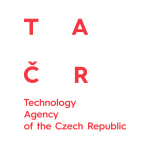Leader of consortium:
Members of the consortium:
Palacky University Olomouc; Institute of Microbiology, ASCR, v.v.i..
Person responsible:
Description:
Innovative bioremediation technologies are environmentally friendly remediation methods for decontamination of persistent organic materials (POPs) and other pollutants from soils. These methods are usually based on application or stimulation of allochthonous or autochthonous microorganisms. This work package deals with alternative innovative methods i.e. mycoremediation and composting. The mycoremediation method represents bioaugmentation technique based on application of ligninolytic fungi that produce extracellular degradative enzymes with low substrate specificity. Ligninolytic fungi are also known for their ability to further degrade primary transformation products (quinones, hydroxyl derivatives, chlorobenzoic acids, etc.) and reduce ecotoxicity and endocrine activity. The composting method is based on activity of a huge number of non-specific types of bacteria and fungi. The composting process, due to its ecological robustness and diversity of bacteria and saprophytic fungi, is very promising and economically relevant method for bioremediation of organopollutants.
Naturally occurring microorganisms are tested for development of bioremediation technologies of persistent organic pollutants (POPs). Of the monitored POPs are included polycyclic aromatic hydrocarbons (PAHs), and especially polychlorinated biphenyls (PCBs), to which these organisms seems to be one of the most effective and fastest degrading. MBU in collaboration with UPOL develop and optimize new biotechnological remediation methods and AECOM CZ and DEKONTA, due to their capabilities and equipment, test these methods in pilot and operational scales.
The main objective of the package is development, testing and optimization of biotechnological remediation methods (mycoremediation and composting) in terms of biodegradation of POPs (PAHs and PCBs), well-known and widespread endocrine active substances (especially xenoestrogens), and possibly other substances from group of drugs, or for example brominated flame quenchers.
Outputs:
- Development and optimization of mycoremediation technology for decontamination of soils contaminated with persistent organic pollutants in pilot plant conditions.
- Development and optimization of composting technology for decontamination of soils contaminated with persistent organic pollutants in pilot plant conditions.


